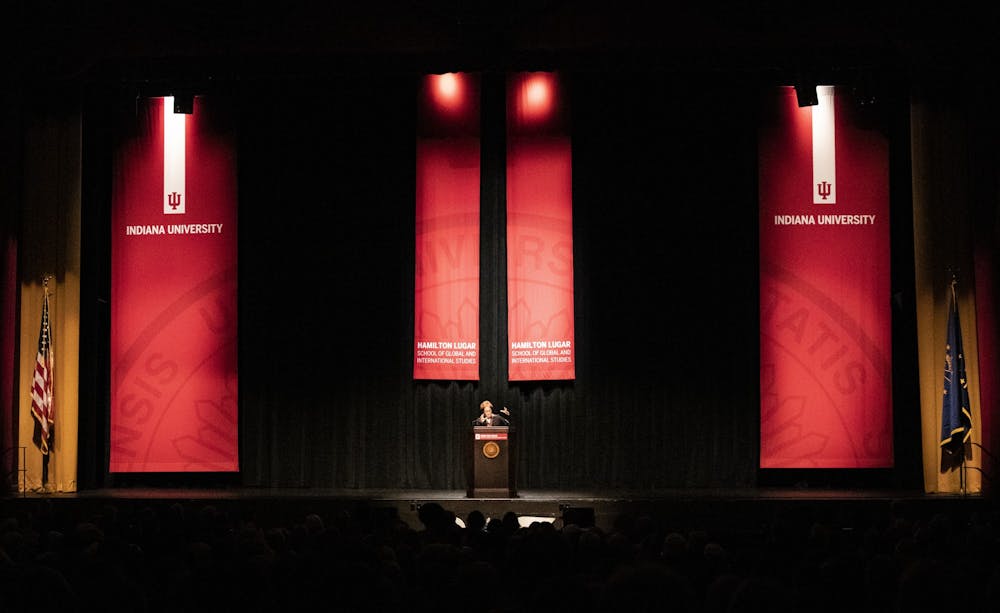Last week, the Hamilton Lugar School of Global and International Studies had its annual America’s Role in the World conference. The two-day conference is the sort of event that reminds many students why they’re glad to be at a school like IU with the famous speakers and interesting global topics it brings to campus.
The conference reminds us of everything IU has to offer and the value of a liberal arts education, which will allow us to make a difference in a changing world. But it also reminds us of why so much of the heartland distrusts so-called global elites. As the students and scholars who are both native Midwesterners and at least temporarily involved in the ivory tower, we should communicate the knowledge we gain from the panelists without being condescending.
The topics at America's Role in the World ranged from climate change to specific bilateral relations and brought youth activists, pollsters, journalists and diplomats — notably, former Ambassador to Ukraine Marie Yovanovitch, who was central to impeachment — to share their expertise. They shared valuable and differing insights about America’s role in the world and students’ role in the world, and their contributions were nuanced and helpful.
Those insights, though, often spoke of non-academic America as a monolith. The primary audience was students and academics, many of the speakers made it clear who they were talking to — and who they weren't.
For example, parts of the discussion in the “Presidential Elections and U.S. Foreign Policy” panel lamented the average American’s lack of interest in global issues. The average American, the panelists suggested, is only concerned about issues that directly affect their finances. If you want them to care about any of the issues on the conference's docket, you have to find a way to frame it in terms of money. Nothing else can resonate with them.
This was not the only panel that took this tone, which is a dangerous one. It reduces the average voter to a walking wallet without values or non-economic interests. It is the sort of deterministic language that makes the average voter feel unwelcome in discourse surrounding foreign policy. It encourages disengagement.
Commentary and calls to action about election security and climate change should be applicable and accessible to all Americans.
It is true that some Americans are disengaged, but frustration with them lacks empathy. Why would Americans who don’t have health insurance or who have to choose between rent and medicine care about foreign policy unless it affects their lives directly? Why would Americans understand the supposed value of democracy promotion abroad when they don’t feel a functioning democracy in their everyday lives?
If this frustration is genuine — if panelists truly want more Americans to engage with U.S. foreign policy — the frustration should be directed up, not down to the grassroots. It should be directed at the pundits who use unnecessary jargon and sweeping predictions and bad analogies between vaguely similar historical events. It should be directed at the policymakers who have not delivered for the average American.
That’s where we come in and where we can shape the heartland’s role in the world. Many of us inhabit both spaces. We are both the intellectuals interested in international relations and the Midwestern kids who come from the same backgrounds that are being talked down to or talked past by conference panelists and pundits.
We can, and should, learn from the renowned experts at events like America's Role in the World. But we should also keep in mind where we come from and how we can share the invaluable knowledge we gain with our families and hometowns. We can do this without seeming as aloof as politicians that people shake hands with once a year.
In other words, we are poised to act as translators between the experts at conferences and Americans back at home, which is a powerful way to shape the heartland’s role in the world.
Kaitlyn Radde (she/her) is a sophomore studying political science. She plans to pursue a career in public interest law.






